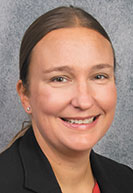Subscriber Benefit
As a subscriber you can listen to articles at work, in the car, or while you work out. Subscribe Now
By Kathleen M. Meek, Kids’ Voice of Indiana
Whether you are a mediator or a lawyer looking to sharpen your negotiation skills, biases can be a hidden hurdle in achieving the best possible outcomes. The recent “Mediation Unplugged” CLE that I attended at IndyBar was an interactive CLE that combined engaging activities with insightful discussions about the types of biases common in mediation practice.
Michael Landford from The Mediation Group was the speaker at Mediation Unplugged. As an experienced mediator and trial lawyer, Langford brough a wealth of experience and expertise to the presentation. He was able to use his comedy skills during the CLE to make the topics more relatable and the event enjoyable. During the program he discussed three key biases that can derail negotiations in mediation: overconfidence, negativity bias, and status quo bias.
Overconfidence, simply put, is the belief that our skills or judgment are superior to reality. Lawyers might overestimate their actual performance, their ability relative to others, or their ability to predict outcomes. Overconfidence can cause mediation to fail. Langford provided practical tips to avoid overconfidence, including remembering not only what your client can win but what they can lose and using your mediator for his or her opinions on valuations.
Negativity bias is the tendency to give more weight to negative information than positive. This may cause lawyers and mediators to dwell on worst-case scenarios. Langford emphasized the importance of acknowledging negative information while actively seeking out positive information to help overcome negativity bias. One way to accomplish this is to find something positive in every demand or offer. He reminded the group that “negotiations aren’t supposed to be easy. Assume there will be snags and disagreements, and you’ll react less intensely when they do.”
Status quo bias is the desire to maintain the current situation, even if it is not ideal. Some familiar statements that highlight status quo bias are: “I’m not going to bid against myself” and “My counter response should reflect how I feel about the other side’s last move.” Langford emphasized the importance of exploring all possibilities, presenting settlement options creatively, and highlighting the advantages of resolution.
After learning about the different types of biases, we put what we learned to the test with a mock mediation. This was my favorite part of the CLE. The attendees were each given a fact pattern and a role, which transformed the IndyBar office into a mediation room. Mediators and lawyers from different practice areas with varied levels of experience were able to showcase their acting abilities and negotiation skills in a simulated dispute.
For mediators in the audience, it was an opportunity to observe different techniques employed by their peers. While the lawyers in attendance gained valuable insights into the mediator’s role and the dynamics of the mediation process. Everyone in attendance was able to see an experienced mediator shuttle between parties and whittle down the issues at hand. Watching the mediator navigate the back-and-forth negotiations and identify common ground was an invaluable learning experience.
This “unplugged” CLE was a welcome departure from the traditional format. It provided a unique opportunity for both mediators and lawyers to examine our biases and practice strategies to overcome them. If you missed this program and would like to learn more about the types of biases and see how attorneys and mediators showcased their new mediation skills, you are in luck. You can purchase a recording of the program through the store at www.indybar.org/unplugged.
Kathleen M. Meek is a serves on the Kids’ Voice of Indiana’s Leadership Team as a Supervising Custody Attorney. She is an active member of IndyBar’s Women and the Law Division and Family Law Section.
Please enable JavaScript to view this content.
